Search
Remove Ads
Advertisement
Summary 
Loading AI-generated summary based on World History Encyclopedia articles ...
Search Results

Definition
Kassite
It is thought that the Kassites originated as tribal groups in the Zagros Mountains to the north-east of Babylonia. Their leaders came to power in Babylon following the collapse of the ruling dynasty of the Old Babylonian Period in 1595 BC...

Definition
New Kingdom of Egypt
The New Kingdom (c. 1570- c.1069 BCE) is the era in Egyptian history following the disunity of the Second Intermediate Period (c. 1782-1570 BCE) and preceding the dissolution of the central government at the start of the Third Intermediate...
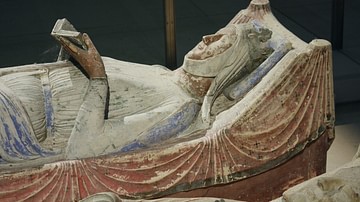
Definition
Eleanor of Aquitaine
Eleanor of Aquitaine (l. c. 1122-1204 CE) was one of the most impressive and powerful figures of the High Middle Ages (1000-1300 CE) – male or female – whose influence shaped the politics, art, medieval literature, and perception of women...
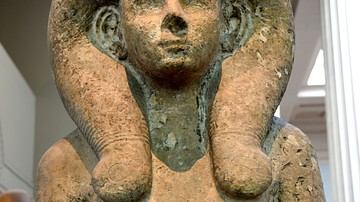
Definition
God's Wife of Amun
The position of God's Wife of Amun was one of the most politically powerful and spiritually significant in later Egyptian history. Elevated from a figurehead in the New Kingdom (c.1570-1069 BCE), the God's Wife of Amun would hold power equal...

Definition
Henry II of England
Henry II of England ruled from 1154 to 1189 CE. He gained the throne by negotiation with his predecessor King Stephen of England (r. 1135-1154 CE) following the civil war that had raged between that monarch and Henry's mother Empress Matilda...
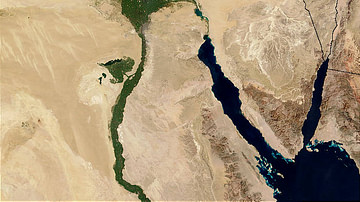
Definition
Xois
Xois (as the Greeks called it) was a vast ancient city located on a marshy island in the center of the Nile Delta of Egypt, modern-day Sakha. It was founded c. 3414-3100 BCE and was continuously inhabited until the rise of Christianity c...
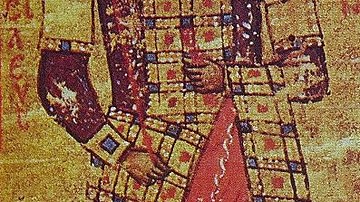
Definition
Manuel I Komnenos
Manuel I Komnenos was emperor of the Byzantine Empire from 1143 to 1180 CE. Manuel continued the ambitious campaigns of his grandfather Alexios I and father John II to aggressively expand the boundaries of his empire. Manuel turned out to...

Image
Ancient Near East c.1500-1300 BCE - The Old Hittite Collapse and the Rise of Kassites, Mitanni, and the New Kingdom of Egypt
This map illustrates the geopolitical landscape of the ancient Near East following the destructive campaigns of the Old Hittite Empire (circa 1650–1500 BCE), which triggered widespread upheaval and realigned regional power structures. In...
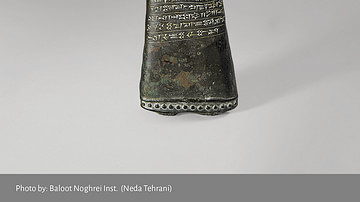
Image
Bronze Figurine with Babylonian Cuneiform Inscription from Western Iran
Bronze figurine with Babylonian cuneiform inscription found in Luristan Province, c. 1000-900 BCE (Iron Age II), National Museum of Iran, Tehran, inv. no. 1408. Photo by Neda Tehrani (Baloot Noghrei) The cultural influence of Mesopotamia...
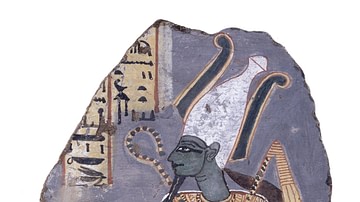
Image
Tomb Painting of Osiris, Thebes
A painting of Osiris, Egyptian god of the dead, from the Tomb of Kynebu. By Osiris' right hand are the four sons of Horus. Thebes, Egypt. Reign of Ramesses VIII (r. 1155-1149 BCE).